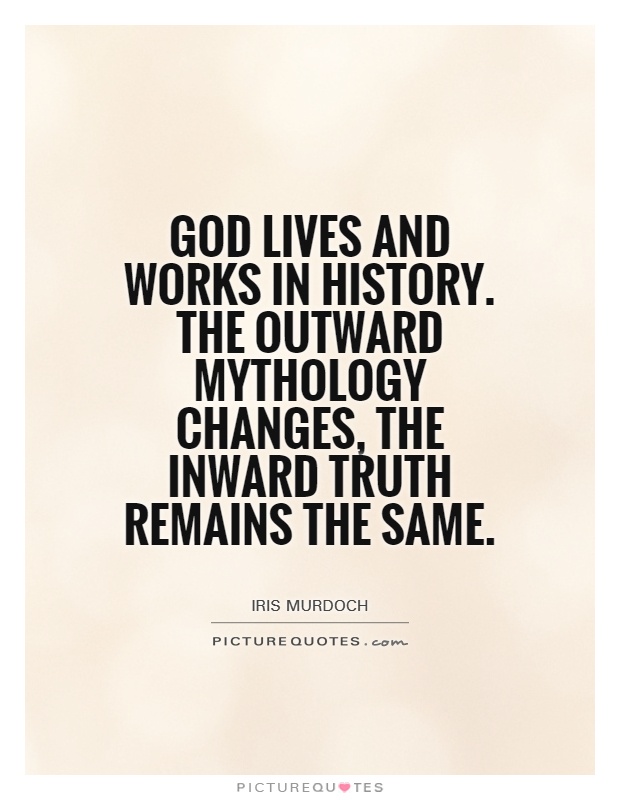God lives and works in history. The outward mythology changes, the inward truth remains the same

God lives and works in history. The outward mythology changes, the inward truth remains the same
Iris Murdoch, a renowned philosopher and novelist, often explored themes of morality, religion, and the nature of reality in her works. One of the recurring ideas in her writing is the concept that God lives and works in history, and that while the outward mythology may change, the inward truth remains constant.In Murdoch's view, history is not just a series of random events, but rather a meaningful and purposeful unfolding of God's plan. She believed that God is actively involved in the world, guiding and shaping events to bring about his ultimate purpose. This idea is reflected in many of her novels, where characters grapple with questions of faith, morality, and the existence of a higher power.
One of Murdoch's most famous works, "The Bell," explores the theme of God's presence in history through the story of a young man named Michael who joins a religious community. As Michael struggles to reconcile his own beliefs with the teachings of the community, he is forced to confront the idea that God's presence may not always be obvious or easily understood. Through Michael's journey, Murdoch challenges readers to consider the ways in which God's presence can be felt in the world, even in the midst of uncertainty and doubt.












 Friendship Quotes
Friendship Quotes Love Quotes
Love Quotes Life Quotes
Life Quotes Funny Quotes
Funny Quotes Motivational Quotes
Motivational Quotes Inspirational Quotes
Inspirational Quotes